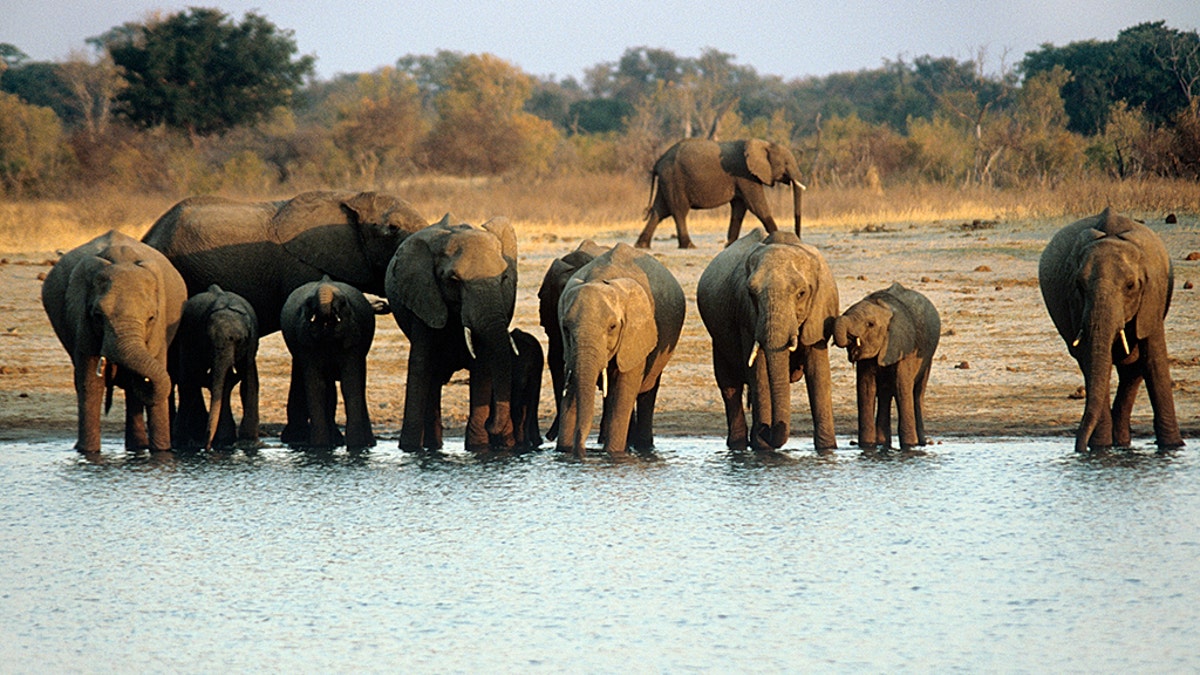
The woman was with a group of tourists at the Mana Pools game reserve (not pictured) when they encountered a herd of elephants upon entering the park (iStock)
Humanity's meat-eating habits are killing off Earth's biggest animals at an alarming rate.
That's according to a shock new study, which found that at least 150 species of large animals are at risk of extinction.
Scientists warned that meat-heavy diets and traditional medicine practices are largely to blame for sharp declines in "megafauna", the term boffins use to describe Earth's largest creatures.
Animals such as lions, elephants, giraffes, rhinos, whales, sharks, sea turtles, alligators and flightless birds like the ostrich were analyzed in the work.
"Our results suggest we're in the process of eating megafauna to extinction," said study author and Oregan State University scientist Professor William Ripple.
"Through the consumption of various body parts, users of Asian traditional medicine also exert heavy tolls on the largest species.
"In the future, 70 percent will experience further population declines and 60 percent of the species could become extinct or very rare."
Professor Ripple's team studied global numbers of nearly 300 species of "megafauna" – any mammal weighing more than 100kg, and any amphibian birds and fish above 40kg.
Of these species, 200 are in decline, while 150 are at risk of being wiped out.
Among those threatened is the Chinese giant salamander, which can grow up to six feet long.
Considered a delicacy in Asia, it's under siege by hunting, development and pollution, and its extinction in the wild is now imminent.
Nine megafauna species have gone extinct in the wild in the past 250 years, including two species of giant tortoise and two species of deer.
As well as hunting, the planet's largest species are also threatened by habitat destruction and unintentional trapping in snares and other devices, scientists said.
life'
Changing our diets may be the only way to save some of these iconic creatures.
"Preserving the remaining megafauna is going to be difficult and complicated," Professor Ripple said.
"But if we don't consider, critique and adjust our behaviors, our heightened abilities as hunters may lead us to consume much of the last of the Earth's megafauna."
The study was published in Conservation Letters.
This story originally appeared in The Sun.








































